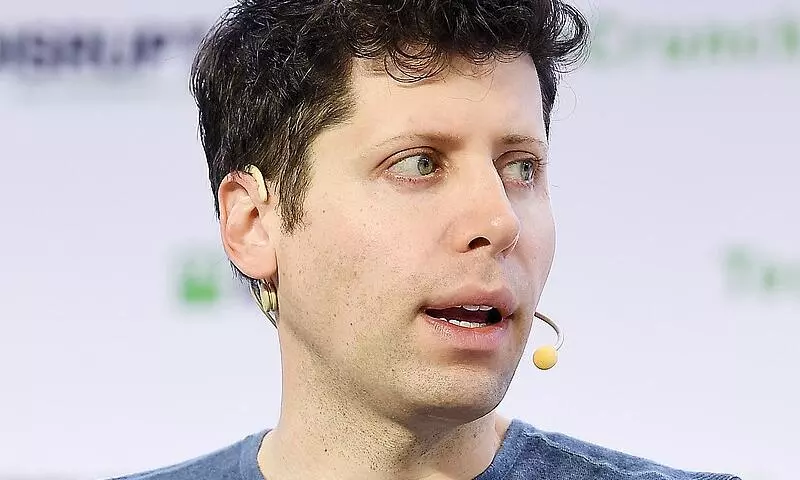
Explained: Why OpenAI sacked Sam Altman and road ahead for ChatGPT maker
Following Altman's ouster, the Microsoft-backed firm announced that its CTO Mira Murati will take over as the interim CEO with immediate effect

The board of ChatGPT maker OpenAI on Friday (November 17) fired its CEO Sam Altman, stating that it no longer had confidence in his ability to lead the Microsoft-backed firm. His dismissal came as a surprise for many in the tech world as he played a key role in the artificial intelligence revolution.
Reacting to the development, Altman tweeted that he loved his time at OpenAI. “It was transformative for me personally, and hopefully the world a little bit. Most of all I loved working with such talented people. Will have more to say about what’s next later,” he said.
The announcement also said another OpenAI co-founder and top executive, Greg Brockman, the board’s chairman, would step down from that role but remain at the company, where he serves as president. However, Brockman later posted a message on X he sent to OpenAI employees in which he wrote, “Based on today’s news, I quit.”
Altman helped start OpenAI as a non-profit research laboratory in 2015. But it was ChatGPT’s emergence that brought Altman into the limelight as a face of generative AI — technology that can produce novel imagery, passages of text and other media. On a world tour this year, he was mobbed by a crowd of adoring fans at an event in London.
What led to Sam Altman’s dismissal as OpenAI CEO?
The OpenAI board sacked Altman after a review found that he was “not consistently candid in his communications” with the board. A statement by the company said, “The board no longer has confidence in his ability to continue leading OpenAI.”
The young CEO's behaviour was “hindering” the board's ability to exercise its responsibilities, the statement added. “OpenAI was deliberately structured to advance our mission: to ensure that artificial general intelligence benefits all humanity. The board remains fully committed to serving this mission. We are grateful for Sam’s many contributions to the founding and growth of OpenAI,” the company wrote in its blog post.
The OpenAI board is comprised of OpenAI chief scientist Ilya Sutskever, Quora CEO Adam D'Angelo, technology entrepreneur Tasha McCauley, and Georgetown Center for Security and Emerging Technology’s Helen Toner.
What next for OpenAI now?
Following the exit of Altman, the tech firm announced that its chief technology officer (CTO) Mira Murati will take over as the interim CEO with immediate effect. Murati was made CTO of OpenAI last year. The company further stated that it will conduct a formal search for a permanent CEO.
“Given her long tenure and close engagement with all aspects of the company, including her experience in AI governance and policy, the board believes she is uniquely qualified for the role and anticipates a seamless transition while it conducts a formal search for a permanent CEO,” the company said in a statement.
Following the announcement, Murati said that she is “honoured and humbled” to step into the leadership role at the company and urged employees to focus on their work, reported Bloomberg.
Who is Mira Murati, the interim CEO of OpenAI?
Promoted as the Chief Technology Officer in May last year, 34-year-old Mira Murati has played a significant role in steering OpenAI’s strategy to test its tools publicly. She made sure that the engineering team came out with ChatGPT versions on time. She managed OpenAI’s ties with Microsoft, an investor and partner deploying its technology, and played a critical role in shaping the company’s artificial intelligence policy in Washington and Europe.
“She has a demonstrated ability to assemble teams with technical expertise, commercial acumen and a deep appreciation for the importance of mission,” Satya Nadella, Microsoft’s CEO, wrote in a piece about her for Time magazine. “As a result, Mira has helped build some of the most exciting AI technologies we’ve ever seen.”
How the OpenAI staff and Microsoft, a key investor, have responded to Altman’s ouster?
Three senior OpenAI researchers Jakub Pachocki, Aleksander Madry and Szymon Sidor told associates they have resigned, news agency Reuters reported. Pachocki, who served as the company's director of research, Madry, the head of a team assessing potential risks from AI, and Sidor, a researcher at OpenAI for seven years, have reportedly resigned from their positions.
Meanwhile, Microsoft CEO Satya Nadella said the company remains committed to its partnership with OpenAI, and the companies will together continue to deliver the meaningful benefits of this technology to the world.
The tech giant invested $10 billion in OpenAI earlier this year, making it a significant investor in the firm with a 49 per cent stake. Microsoft also invested $1 billion in 2019 and had another funding round in 2021. The $80-billion OpenAI works closely with Microsoft’s cloud service Azure
In a post on X on Friday, Nadella said, “As you saw at Microsoft Ignite this week, we’re continuing to rapidly innovate for this era of AI, with over 100 announcements across the full tech stack – from AI systems, models, and tools in Azure, to Copilot. Most importantly, we’re committed to delivering all of this to our customers while building for the future.”
“We have a long-term agreement with OpenAI with full access to everything we need to deliver on our innovation agenda and an exciting product roadmap, and remain committed to our partnership, and to Mira and the team. Together, we will continue to deliver the meaningful benefits of this technology to the world,” he said.

